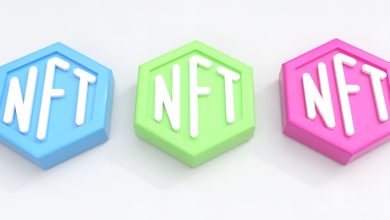Cardano’s Smart Contract Capabilities: What You Need to Know

- Understanding Cardano’s Smart Contract Technology
- Exploring the Potential of Cardano’s Smart Contracts
- How Cardano’s Smart Contracts Compare to Other Platforms
- Key Features of Cardano’s Smart Contract Capabilities
- Challenges and Opportunities in Using Cardano’s Smart Contracts
- Tips for Developing Smart Contracts on the Cardano Blockchain
Understanding Cardano’s Smart Contract Technology
Cardano’s smart contract technology is a key feature that sets it apart from other blockchain platforms. Unlike some other cryptocurrencies, Cardano uses a unique approach to smart contracts that emphasizes security, scalability, and sustainability. This approach is based on a rigorous academic research process and is designed to ensure that smart contracts on the Cardano platform are secure and reliable.
One of the key innovations of Cardano’s smart contract technology is its use of a programming language called Plutus. Plutus is a functional programming language that is specifically designed for writing smart contracts on the Cardano blockchain. This language allows developers to write smart contracts in a way that is both secure and easy to understand, making it easier to avoid common pitfalls and vulnerabilities that can lead to security breaches.
In addition to Plutus, Cardano also uses a unique consensus mechanism called Ouroboros. This mechanism is designed to ensure that smart contracts on the Cardano platform are executed in a secure and efficient manner. By using a proof-of-stake approach, Ouroboros is able to achieve consensus on the state of the blockchain without the need for costly mining operations, making it more sustainable and environmentally friendly than other consensus mechanisms.
Exploring the Potential of Cardano’s Smart Contracts
Cardano’s smart contracts are gaining attention for their potential to revolutionize the way transactions are conducted on the blockchain. These contracts are designed to be secure, reliable, and scalable, making them ideal for a wide range of applications. One of the key features of Cardano’s smart contracts is their ability to execute complex transactions without the need for intermediaries. This not only reduces costs but also increases efficiency and transparency in the process.
Furthermore, Cardano’s smart contracts are built using a programming language called Plutus, which is based on Haskell. This language is known for its robustness and security, making it an ideal choice for developing smart contracts that need to handle sensitive data and large sums of money. With Plutus, developers can create highly customizable contracts that meet the specific needs of their users.
In addition to Plutus, Cardano also offers a unique feature called Marlowe, which is a domain-specific language for creating financial contracts. Marlowe is designed to be accessible to non-programmers, allowing anyone to create and deploy smart contracts on the Cardano blockchain. This opens up a world of possibilities for businesses and individuals looking to leverage the power of smart contracts without having to learn complex programming languages.
Overall, the potential of Cardano’s smart contracts is vast. From decentralized finance to supply chain management and beyond, these contracts have the ability to transform industries and create new opportunities for innovation. As the Cardano ecosystem continues to grow and evolve, it will be exciting to see how developers and users alike harness the power of smart contracts to build a more secure and efficient future.
How Cardano’s Smart Contracts Compare to Other Platforms
When comparing Cardano’s smart contract capabilities to other platforms, it is essential to consider various factors that set it apart. One key aspect is Cardano’s focus on security and scalability. Unlike some other platforms, Cardano utilizes a unique proof-of-stake algorithm called Ouroboros, which enhances security and efficiency in executing smart contracts.
Additionally, Cardano’s approach to smart contracts is based on peer-reviewed research and formal verification methods. This rigorous process ensures that smart contracts deployed on the platform are less prone to bugs and vulnerabilities, providing users with a higher level of confidence in the code’s reliability.
Furthermore, Cardano’s smart contract capabilities are designed to be more flexible and customizable compared to other platforms. This allows developers to create a wide range of decentralized applications (dApps) that can cater to various use cases, from finance to supply chain management.
In contrast to platforms like Ethereum, Cardano also boasts lower transaction fees and faster processing times. This can be especially advantageous for developers and users looking to avoid high costs and delays when executing smart contracts on the blockchain.
Overall, Cardano’s smart contract capabilities stand out for their emphasis on security, scalability, flexibility, and cost-effectiveness. By prioritizing these aspects, Cardano aims to provide a robust foundation for the future of decentralized applications and smart contracts in the blockchain ecosystem.
Key Features of Cardano’s Smart Contract Capabilities
Cardano’s smart contract capabilities offer a range of key features that set it apart from other blockchain platforms. One of the main advantages of Cardano is its scalability, which allows for a high volume of transactions to be processed quickly and efficiently. This is essential for applications that require a large number of transactions to be executed in a short period of time. Another important feature of Cardano’s smart contracts is their security. The platform uses a rigorous peer-review process to ensure that smart contracts are free from vulnerabilities and potential exploits. This helps to protect users’ funds and data from malicious actors.
In addition to scalability and security, Cardano’s smart contracts are also highly customizable. Developers can create smart contracts using a range of programming languages, including Plutus and Marlowe. This flexibility allows for a wide variety of applications to be built on the platform, from decentralized finance (DeFi) to supply chain management. Furthermore, Cardano’s smart contracts are designed to be energy-efficient, using a proof-of-stake consensus mechanism that consumes significantly less power than traditional proof-of-work systems. This makes Cardano a more sustainable option for those concerned about the environmental impact of blockchain technology.
Challenges and Opportunities in Using Cardano’s Smart Contracts
One of the main challenges in utilizing Cardano’s smart contracts is the learning curve associated with their programming language, Plutus. Developers may need time to familiarize themselves with this language and its unique features compared to other smart contract platforms. However, this can also be seen as an opportunity for developers to expand their skill set and work on cutting-edge technology.
Another challenge is the limited number of tools and resources available for developing smart contracts on Cardano compared to more established platforms like Ethereum. This can make the development process more time-consuming and require a higher level of expertise. Despite this, it presents an opportunity for developers to pioneer new solutions and contribute to the growth of the Cardano ecosystem.
Interoperability is another challenge to consider when using Cardano’s smart contracts. Ensuring compatibility with other blockchain networks and protocols can be complex and require additional development work. However, this challenge also presents an opportunity for developers to create innovative solutions that bridge the gap between different blockchain platforms.
One of the key advantages of Cardano’s smart contract capabilities is its focus on security and scalability. By utilizing a proof-of-stake consensus mechanism and rigorous peer-reviewed research, Cardano aims to provide a secure and efficient platform for smart contract development. This focus on security and scalability presents an opportunity for developers to build robust and reliable applications on the Cardano blockchain.
Overall, while there are challenges in using Cardano’s smart contracts, such as learning a new programming language and limited tools, there are also opportunities to innovate, contribute to the ecosystem, and prioritize security and scalability. By overcoming these challenges and leveraging these opportunities, developers can unlock the full potential of Cardano’s smart contract capabilities.
Tips for Developing Smart Contracts on the Cardano Blockchain
When developing smart contracts on the Cardano blockchain, there are several tips to keep in mind to ensure a smooth and successful process. These tips can help you navigate the complexities of programming on this platform and avoid common pitfalls. Here are some key pointers to consider:
- Understand Cardano’s architecture: Before diving into smart contract development on Cardano, take the time to familiarize yourself with the platform’s architecture and how it differs from other blockchains. This will give you a solid foundation to build upon.
- Use the Plutus platform: Cardano’s smart contracts are written in Plutus, a functional programming language based on Haskell. Make sure to become proficient in Plutus to leverage its capabilities fully.
- Focus on security: Security is paramount when it comes to smart contracts. Take the time to thoroughly test your code and implement best practices to mitigate potential vulnerabilities.
- Utilize formal verification: Cardano supports formal verification, a process that mathematically proves the correctness of your smart contract code. Consider using this tool to enhance the reliability of your contracts.
- Engage with the community: The Cardano community is a valuable resource for developers. Engage with other users, participate in forums, and seek feedback on your smart contract projects to improve and iterate.



